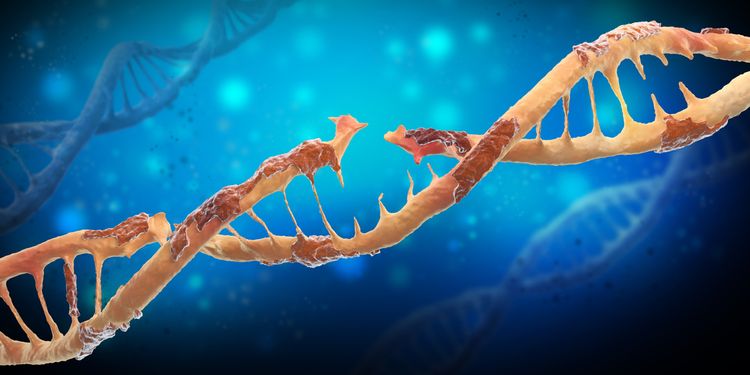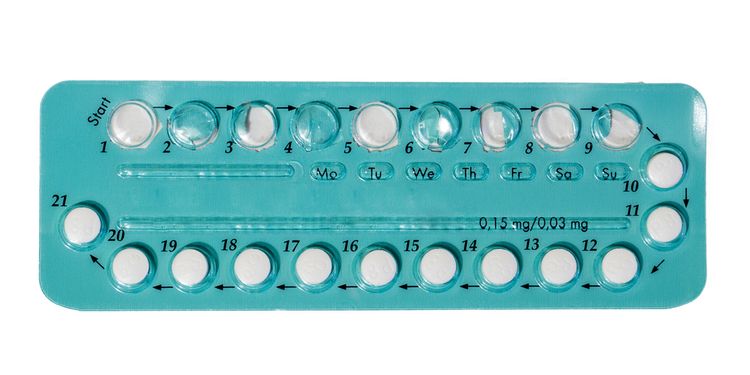Methylation Explained in Plain English
By the time you finish reading this sentence, the process of methylation will have occurred in your body more than a billion times. If that doesn’t trigger your anxiety, well done!
Methylation is a process that occurs in every cell in your body. Consequently, it affects literally every system and function of your body. To say that methylation is vital for your health is a gross understatement.
So, what exactly is methylation? Why should you care about it, and how can you make sure it’s running smoothly?
What Does Methylation Do?
Explaining the ins and outs of this process can get extremely complicated very quickly— that is, if you don’t have a degree in medicine or biochemistry! As such, I’ll do my best to keep it simple.
Methylation is a basic biochemical process that happens at the molecular level.
Basically, methylation is when one molecule passes a group of one carbon atom and three hydrogen atoms (CH3, or a “methyl”) to another molecule.
I won’t go into exactly what this accomplishes, but suffice it to say that this tiny process is extremely important, and your health relies on methylation running smoothly and efficiently. Here is a list of some of the bodily processes that rely on, or are affected by, methylation:
- The production of glutathione, the primary antioxidant and detoxifier
- The production of creatine, melatonin, and many other important substances
- The production of ATP, the basic energy unit of your cells. Without ATP, your cells wouldn’t have enough energy, and nothing in your body would work well.
- The breakdown of histamines in the gut released during inflammation and allergic responses
- Cellular repair
- The production and repair of DNA and mRNA (a sort of messenger, delivering information from DNA to where proteins are built in the cell)
- Detoxification
- The production of neurotransmitters
- Regulation of homocysteine levels (a harmful compound damaging to blood vessels)
- Mood maintenance
- Healthy immune system function
- Proper formation and maturation of red and white blood cells
- The production of platelets (the parts of blood that cause clotting)

Methylation also regulates gene expression. That means it turns genes off and on.
Through its regulation of gene expression, methylation basically tells our body what to do. This is an important point related to what’s known as epigenetics, the study of how our bodies are affected by gene expression.
Basically, the genes our ancestors pass down to us don’t determine everything about our bodies and our health. We don’t need to change the genes we have to affect our body and/or health. We can just switch some of them on and some of them off.
As I said above, the process of methylation affects everything in the body. However, it’s worth mentioning that methylation probably affects the brain, mind, gut, and detoxification systems a bit more than other systems.

What Happens When Methylation Isn’t Working Well?
Poor methylation function often leads to serious health issues.
When methylation isn’t working properly, levels of glutathione (an antioxidant) drop. This means the body is less capable of removing toxins.
Toxins and inflammation build up in your blood and tissues, leaving you at a higher risk of infections and toxic damage.
This can lead to a host of serious health issues, such as Parkinson’s, irritable bowel syndrome (IBS), stroke, breast cancer, Alzheimer’s, multiple sclerosis, heart attacks, chronic fatigue syndrome, infertility, and frequent miscarriage.
Mental disorders such as autism, down’s syndrome, schizophrenia, bipolar disorder, depression, and anxiety have also been linked with decreased methylation function.

What Causes Methylation to Function Poorly?
Methylation is affected by two things: genetics and environment.
Genetics
The genes in your DNA are in charge of “coding” various parts of your body. Essentially, your genes write the rules.
Sometimes, your genes mess things up, however. They develop a mutation, and this leads to parts of your body functioning poorly or not at all.
Methylation is carried out in your body by a number of enzymes, which are all coded by one of two genes (one from each parent). When the genes that code for these methylation enzymes have a mutation, the enzymes responsible for methylation don’t work as well as they should, which leads to impaired methylation.
If both genes are mutated, you have a “homozygous mutation,” and methylation will run at about 10-20% of normal efficiency. Homozygous mutations put you at serious risk of health issues. Many people with a homozygous gene mutation die in their 20s or even younger.
If only one gene is mutated, you have a “heterozygous mutation,” and methylation will run at about 60% efficiency. Heterozygous mutations are less fatal than homozygous mutations, but they can still lead to serious health defects. Those with heterozygous mutations often have cholesterol levels in 300-400 range, and even up in the 500s.
Of the various enzymes involved in methylation, the most important one (and the one most likely to be affected by a gene mutation) is called MTHFR. Different gene mutations have led to over 50 known MTHFR enzyme variants, but two in particular are most often associated with health issues: C677T and A1298.
Different health issues tend to follow from these two enzyme variants. The C677T enzyme variant is commonly associated with heart disease, stroke, deep vein thrombosis, stillbirths, and high levels of homocysteine. A1298 is commonly associated with depression, anxiety, dementia, schizophrenia, IBS, fibromyalgia, and Parkinson’s.
Before we move on, I want to clarify that methylation gene mutations don’t always lead to decreased methylation function.
Sometimes, gene mutations practically guarantee the development of serious health conditions, like those that lead to sickle cell anemia or cystic fibrosis. However, mutations in genes responsible for methylation only increase the risk of decreased methylation activity and efficiency.

Environmental Factors
Methylation function isn’t determined by genetics alone— research has shown that healthy methylation is also affected by environmental factors (in other words, the health of your body).
Many things can contribute to unhealthy methylation: smoking cigarettes, being exposed to toxins, having reduced stomach acid (e.g., due to aging), pregnancy, having only one kidney, having cancer, and taking certain medications (such as acid blockers, oral contraceptives, Dilantin (for seizures), HCTZ (for high blood pressure), and methotrexate (for cancer, arthritis, and other autoimmune diseases)).
Methylation is also affected by your diet, how much you exercise, how much and how well you sleep, your capacity to manage stress, and the health of your gut microbiome.
The key takeaway here is that you’re not wholly a victim to circumstances and genetics.
You have the power, through your lifestyle and health choices, to affect how well methylation functions in your body!

What Can I Do to Ensure Healthy Methylation Function?
There are three steps you can take to make sure methylation is running smoothly and efficiently in your body:
- Test to see how well your methylation is working.
Dr. Jill Carnahan recommends getting tested if you:
- Experience chronic mood disorders like anxiety, depression, irritability, or bipolar
- Struggle with neurological disorders such as autism, Alzheimer’s, MS, epilepsy, or Parkinson’s
- Are going through cancer treatment or have a family history of cancer
- Have parents or family members with MTHFR mutations
- Have issues with infertility
- Have any “syndromes” (IBS, fibromyalgia, chronic fatigue syndrome, Down’s)
- Have experienced or have a family history of cardiovascular issues, such as strokes, heart attacks, clots, embolisms, or hypertension
- Are especially sensitive to drugs or chemicals
- Were born with one of the following: cleft palate, tetralogy of Fallot, spina bifida, midline defects
- Have cervical dysplasia
- Have elevated levels of folate, homocysteine, s-adenosylhomocysteine, serum cobalamin, or methylmalonic acid
Once you decide you’d like to get tested, you can ask your doctor for one of the following:
- Complete blood count
- Homocysteine test
- Serum or urinary methylmalonic acid
- Specific urinary amino acids
Please talk to your doctor or functional medicine clinician for help deciding which test is best for you.

- Avoid things that hurt your methylation process
If testing reveals you do in fact have decreased methylation function, there are many steps you can take to support this vital process in your body.
Dr. Mark Hyman recommends you eat minimal amounts of animal protein (which increases homocysteine levels), sugar, and saturated fats (which deplete vitamins), cut out processed and canned foods completely, and avoid caffeine and alcohol as much as possible.
Finally, avoid medications that affect levels of B vitamins, like acid blockers, methotrexate, oral contraceptives, HCTZ, and Dilantin, and don’t smoke cigarettes!

- Include things that support your methylation
For methylation support, your main paths are supplementation, medication, and a healthy lifestyle.
Dr. Carnahan recommends supplementing with methyl-folate, methyl B12, and either the liposomal form of glutathione or n-acetylcysteine (NAC). She also recommends trying Thorne Research Methyl Guard Plus, 5-MTHF (1mg and 5mg), and other B vitamins, like vitamin b6 and riboflavin.
Dr. Jill also recommends taking prescription medications that include methyl-folate (such as Deplin, MetanX, and CerefolinNAC) or methyl B12, which are available as a nasal spray, sublingually, or as shots (which are the most effective).
Dr. Hyman recommends supplementing with probiotics (to keep your gut microbiome healthy), herbal digestives (to improve stomach acid), magnesium and zinc (to support methylation), antioxidants, folate (folic acid), vitamin B6 (2 to 5mg a day), Vitamin B12, and betaine.
In terms of diet, eat plenty of foods high in B vitamins, such as fish, eggs, cheese, beans, walnuts, almonds, sunflower seeds, wheat germ, asparagus, whole grains, liver, and dark, leafy greens (at least one cup a day). Dark, leafy greens include kale, Swiss chard, watercress, bok choy, escarole, spinach, or mustard, collard, dandelion, and beet greens.
Finally, live a healthy lifestyle. Exercise regularly, get enough sleep, take care of your microbiome, and learn to reduce and manage stress well. For help with any of these things, look around on Healevate!

Before You Go
As I’m sure you’ve gathered by now, this is complicated stuff!
Please talk to a doctor for help with this entire process— deciding whether you need to test for decreased methylation function, understanding your test results, and most especially implementing a protocol to address reduced methylation activity (if that’s the case).
While it’s hard to go wrong with a healthy diet and lifestyle, it’s easy to overdo it with methylation supplementation, which can create its own problems. How much of each supplement you should take will depend on your unique situation, and too much of a certain supplement can be dangerous to your health.
Finally, it’s worth mentioning that if/when you start the supplementation process, you’ll probably experience a number of unpleasant “die-off” symptoms as your body clears out stored up toxins.
If you experience any of the above symptoms or health issues, I urge you to talk to a medical professional and get yourself tested! Taking steps to ensure methylation is working well in your body could be the key to living a vibrantly healthy life.
